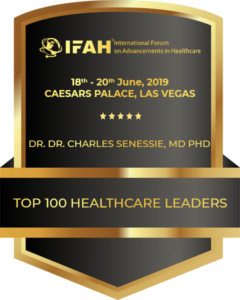Thousands of patients took the opportunity to see a doctor, nurse or midwife during AEMRN mobile clinics.
August 2011-Member of the African-European Research and Medicine Network (AEMRN) Alliance made conversation with recently conducted multidisciplinary medical work camps and mobile clinics in Kitale, northwestern Kenya. AEMRN addressed its core mandate by sharing experiences and knowledge with communities in need and reaching populations living in resource-limited and hard-to-reach areas through a volunteer program powerful and diverse.
With a clear, results-oriented mindset, AEMRN members organized an intensive week of medical work at the end of July 2011 with a team of 27 international volunteers including doctors, nurses, midwives nurses, epidemiologists, a vector control specialist, psychiatrists, and a team of health workers from the Kenyan Ministry of Health.
“We are delighted that we have been able to conduct mobile clinics in Kitale, as it has proven that there is a real need for exchange and sharing of knowledge by professionals from different disciplines and countries,” said Dr. Charles Senessie, President of AEMRN International. He added: “Our work clearly complements the efforts of Kenya’s Ministry of Health to reduce the knowledge gap between Western colleagues and low-income countries, as well as to promote clinical practices based on and improve the South-South and North-South collaboration.

© AEMRN, 2011
Medical consultation at the AEMRN mobile clinic in Matisi, Kenya, 28 July 2011.
The week began at the government hospital in Kitale, a farming town in the Rift Valley province of northwestern Kenya. Participants worked at the hospital alongside local colleagues during the first day and participated in ward tours, further facilitating the exchange and sharing of knowledge and experiences that were true to AEMRN’s vision.
Mobile clinics were conducted for two consecutive days and reached more than 3,000 patients in the Kipsogo slum and Matisi village.
An important component of mobile clinics has been the ability to conduct a community epidemiological survey for malaria and sickle cell disease. In addition, in collaboration with the United Kingdom’s Office for National Statistics, data collected from the patient registration card, diagnosis and treatment, will be analysed and further informed of the development of health policies at the district level. In addition, in partnership with the Global Partnership for Health and The Regular Women’s International, mobile clinics have also offered free voluntary HIV testing and counselling. Seriously ill patients were referred to the government hospital and were offered initial physical money for admission, medication and transportation to the hospital.

© AEMRN, 2011
Dr. Senessie and a colleague organizing the mobile clinic in Matisi village, Kitale region, Kenya
The mobile clinics were followed by a one-day continuing medical training seminar for all health worker shuffle managers at Kitale Hospital, on a range of topics including malaria prevention, heart disease and health statistics.
Health services provided to the public have proven to be extremely valuable in an area where consultation, review and supply of medicines are non-existent. In addition, the truly collaborative nature of the program also promotes local development and capacity building, and promotes partnerships for sustainable solutions to improve access to health care in rural areas and Remote.
The Alliance congratulates AEMRN on its medical camps and mobile clinic project and encourages all other Alliance members to share their valuable stories about health worker-related projects.







 Who's Online : 12
Who's Online : 12
No comments yet.